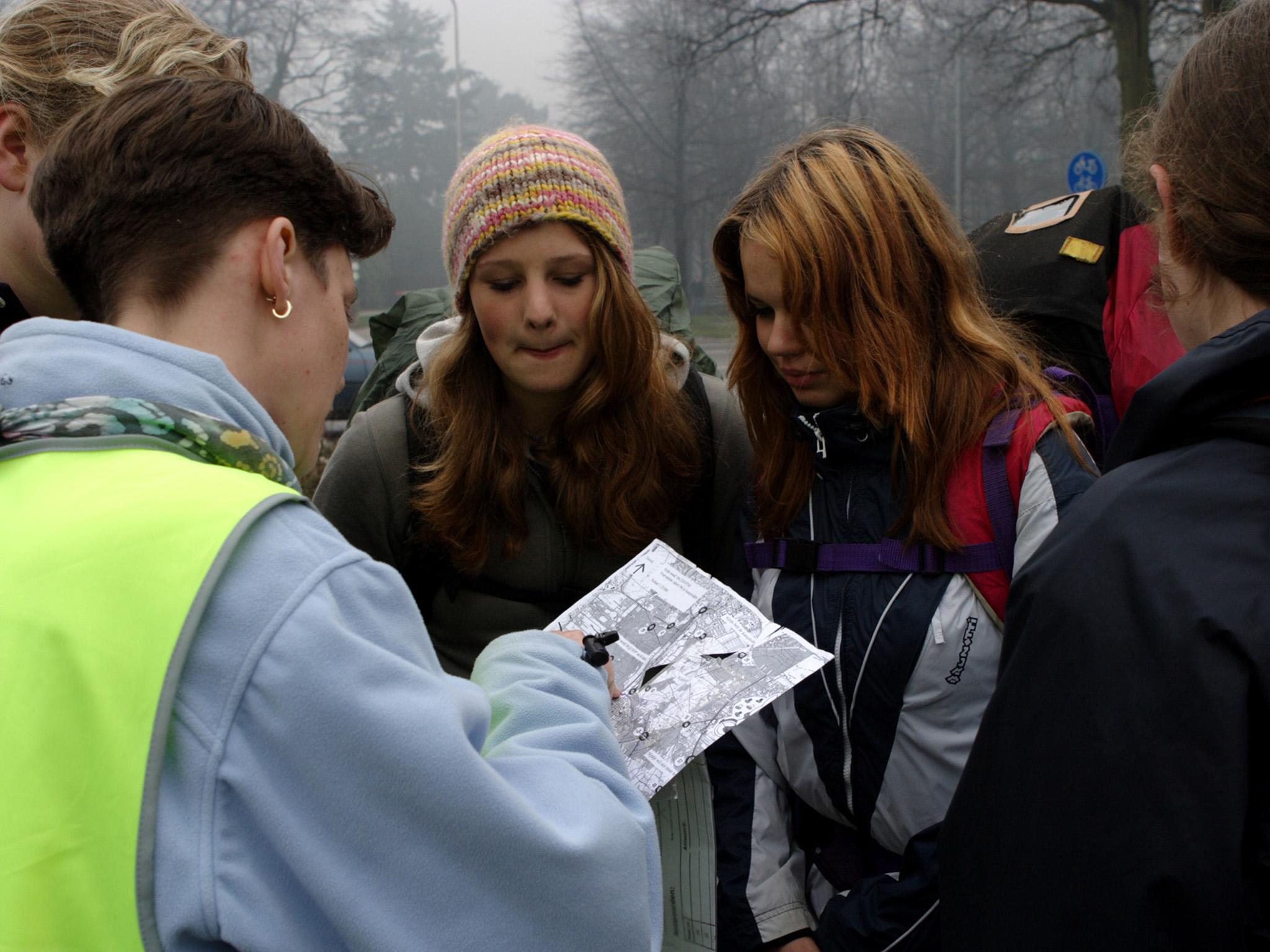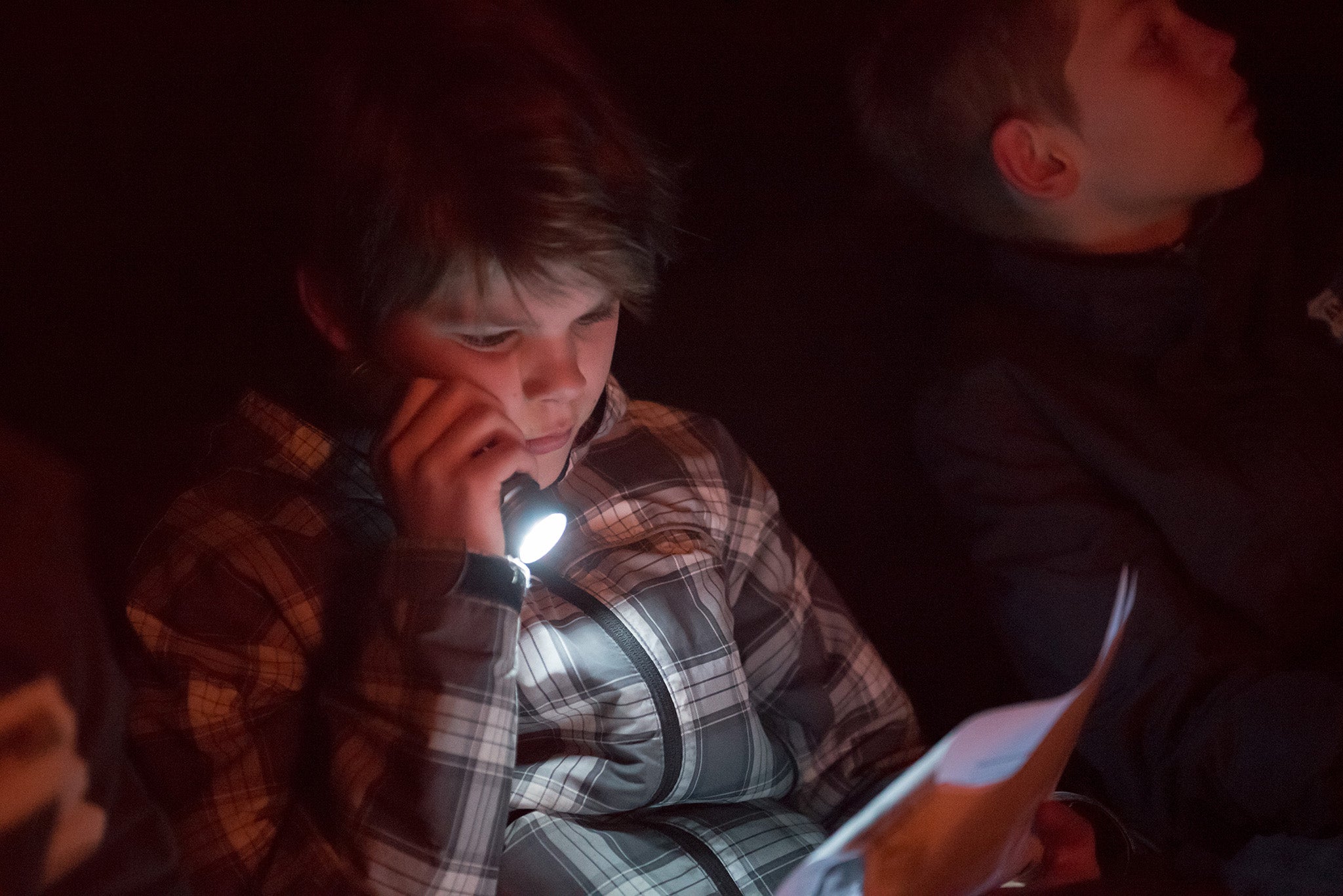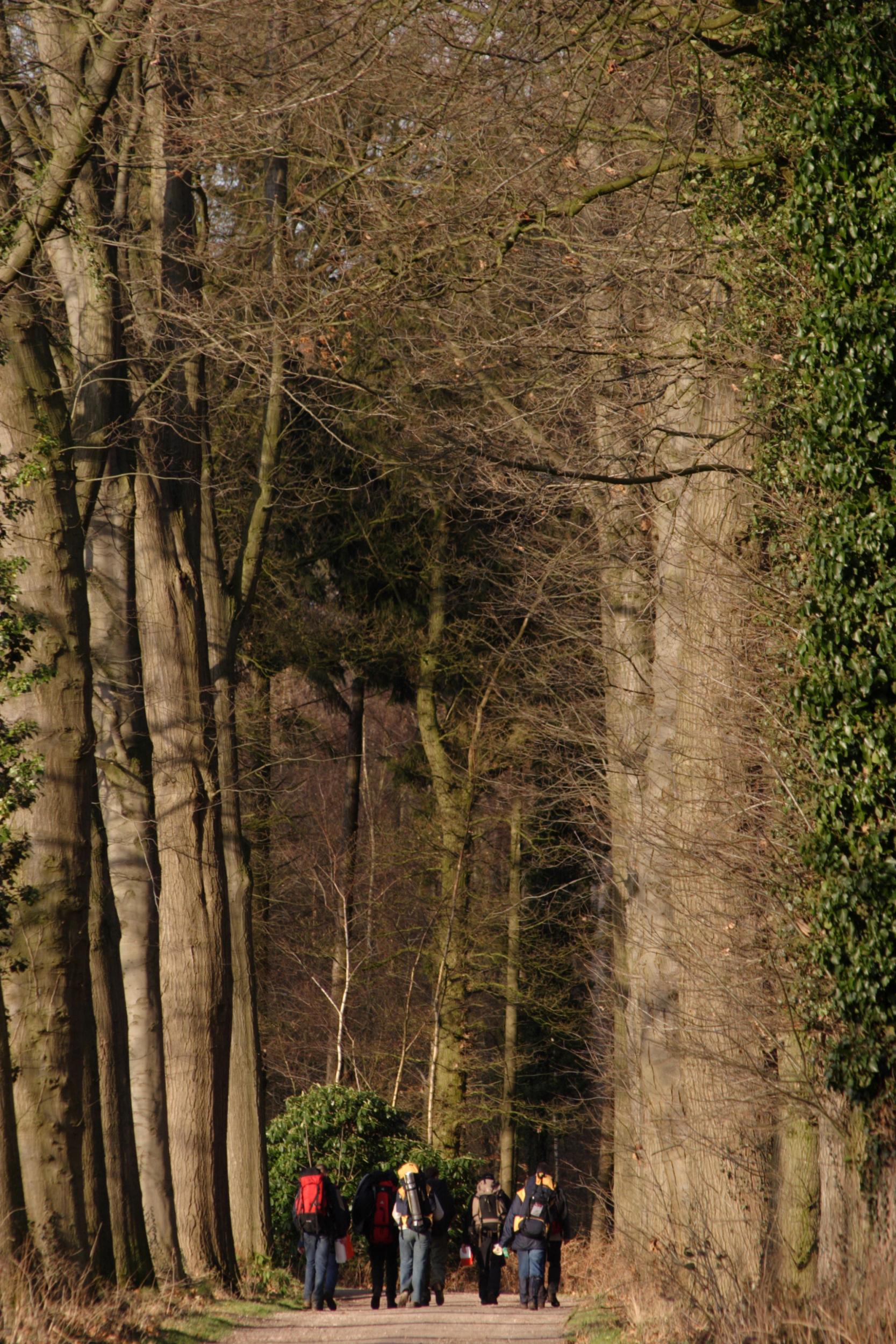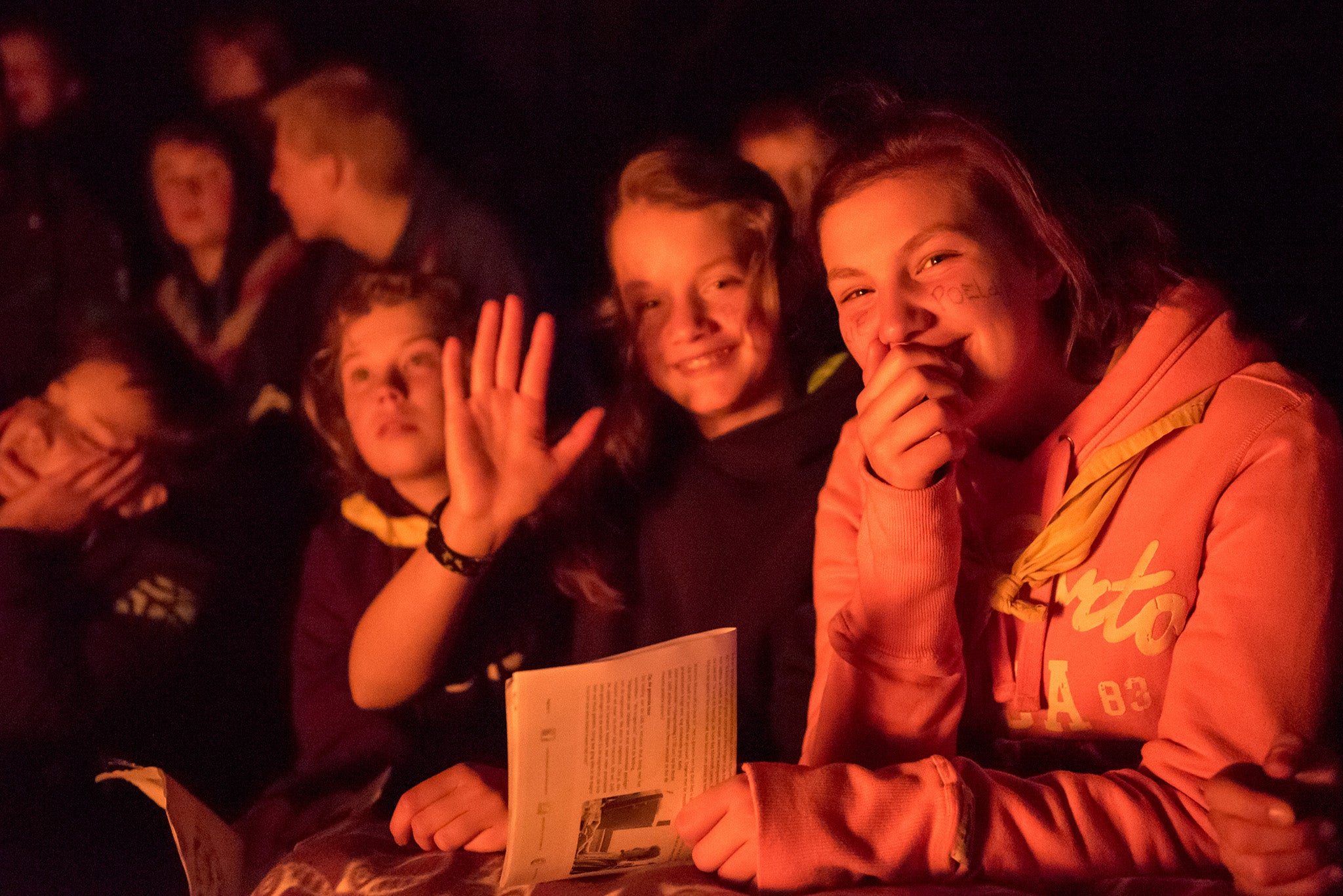Inside the strange Dutch tradition of ‘dropping’ your kids off in the forest at night
‘If this sounds a little crazy to you, it is because you are not Dutch’

Your support helps us to tell the story
From reproductive rights to climate change to Big Tech, The Independent is on the ground when the story is developing. Whether it's investigating the financials of Elon Musk's pro-Trump PAC or producing our latest documentary, 'The A Word', which shines a light on the American women fighting for reproductive rights, we know how important it is to parse out the facts from the messaging.
At such a critical moment in US history, we need reporters on the ground. Your donation allows us to keep sending journalists to speak to both sides of the story.
The Independent is trusted by Americans across the entire political spectrum. And unlike many other quality news outlets, we choose not to lock Americans out of our reporting and analysis with paywalls. We believe quality journalism should be available to everyone, paid for by those who can afford it.
Your support makes all the difference.Shortly after 10pm on a recent night, a car comes to a stop at the edge of the woods. A door opens to release three children: towheaded boys of 12 and 15, and a 12-year-old girl with dark pigtails and an emoji-covered backpack. Then the driver throws the car into gear and speeds away, gravel crunching under its tyres.
They are tiny figures at the foot of the forest, miles from the summer camp they are attending, with only a primitive GPS to indicate the right direction. Darkness is falling. And they are alone.
They peer into the night: is this the path?
“Could be,” says Thomas, the 12-year-old team leader.
And then, because there is nothing else to do, they plunge into the woods.
This is the Dutch scouting tradition known as a “dropping”, in which groups of children, generally preteenagers, are deposited in a forest and expected to find their way back to base. It is meant to be challenging, and they often stagger in at 2 or 3 in the morning.
In some variations of the challenge, loosely based on military exercises, adults trail the teams of children, but refuse to guide them, although they may leave cryptic notes as clues. To make it more difficult, adult organisers may even blindfold the children on their way to the dropping, or drive in loop-de-loops to scramble their sense of direction.
Sometimes, they hide in the underbrush and make noises like a wild boar.
If this sounds a little crazy to you, it is because you are not Dutch.

The Dutch – it is fair to say – do childhood differently. Children are taught not to depend too much on adults; adults are taught to allow children to solve their own problems. Droppings distil these principles into extreme form, banking on the idea that even for children who are tired, hungry and disoriented, there is a compensatory thrill to being in charge.
Certainly, many adults in the Netherlands look back on their droppings fondly. Rik Oudega, a 22-year-old scout leader, recalls being pulled over by police as he drove the wrong way on a one-way road on his way to a dropping. His heart sank, he says, “because what I did was against the law”.
The officers pulled up beside him and asked him to roll down his window. They peered into the back seat of his car, where there were four children in blindfolds, which, Oudega says, “is not really allowed either”.
Oudega tried to look wholesome. “I’m here on a dropping,” he told them, hoping for the best.
“They looked at each other, then they smiled at me and said: ‘Have a good evening. And try to follow the rules.’”
The children on the dropping in Austerlitz, not far from Utrecht, walk into the woods, and the smell of pine needles rises from the sandy earth. The forest floor is patched with ink-black moss. A half-moon appears in the sky.
For a few minutes, there is the sound of cars on a road, but then that, too, quietens. The woods closes in, becoming dense.
The night is the first dropping for Stijn Jongewaard, an 11-year-old boy with jutting ears, who claims to have learned English from Minecraft video games and Hawaii Five-O. At home, he spends much of his leisure time planted in front of his PlayStation. This is one reason his parents have sent him to camp. He has never been lost in the woods before.

His mother, Tamara, says the time had come for him to take on greater responsibility, and the dropping is a step in that direction.
“Stijn is 11,” she says. “The time window in which we can teach him is closing. He is going into adolescence, and then he will make decisions for himself.”
After they had been walking for half an hour, the group turn off the path and into the forest, then pause, stand in conference for a few minutes, and reverse themselves. Ten yards off the path, a huge body leaps, thrusting, behind the leaves, and the children startle. A deer.
If you peruse the Dutch newspapers with sufficient attention, you will find evidence of droppings gone awry. In 2012, German news media reported that five Dutch boys on a dropping in Germany called local police to extract them from the narrow space where they had become stuck, between a rock face and a ventilation duct.
A “perilous adventure”, the Germans reported.
But Dutch journalists seemed unimpressed at all the fuss, mocking it as a “droppingsdrama” and “a bit romanticised”. “The dropping is often the most exciting part of a camping trip,” one follow-up article said.
Another report surfaced in 2017, when scout leaders in Belgium dropped 25 children in the woods, and then drank a number of beers and fell asleep, leaving the children wandering in the forest after their appointed pickup time. The campers finally rang someone’s doorbell and got a ride.
“The parents,” the newspaper noted somberly, “were not satisfied with the incident.”
Droppings are such a normal part of Dutch childhood that many there are surprised to be asked about it, assuming it is common to every country. But Pia de Jong, a novelist who has raised her children in New Jersey, says it reflects something particular about the Dutch philosophy of parenting.
“You just drop your kids into the world,” she says. “Of course, you make sure they don’t die, but other than that, they have to find their own way.”
Still, De Jong, 58, has begun to question whether droppings are really all that fun. “Imagine that you are lost and have no idea where to go,” she says. “It could be 10 hours, it could be the whole night, you just don’t know. It is late and long and people are a little frightened.”
She pauses, in thought. “I don’t think it’s a nice thing to do to kids, actually,” she says.

In 2011 and 2014, children on droppings were fatally struck by cars while walking alongside roads. Since then, the practice has become far more regulated.
The dropping team does carry a cellphone in case of emergency, and the scouting association requires participants to wear high-visibility vests and distributes a long list of guidelines, mainly geared towards traffic safety. “Pushing boundaries is fun,” reads one recommendation, “but that, too, has boundaries.”
The scout leaders of the recent dropping, staring into the embers of a campfire, murmur about the proliferating paperwork, the way childhood has softened in recent years. “Society is changing,” Oudega says. “It’s a miracle that we are allowed to have a fire.”
But the core experience of dropping, he adds, has not changed.
“It really is being on your own,” he says. “It really does make you feel that you are in charge.”
By 1am, Stijn and the other campers are well into their third hour of hiking. They trudge along a paved road in single file, too drained for conversation. Fifteen minutes pass, and then another 15 minutes, and there is no sign that they are anywhere near their campsite. Stijn is staring straight ahead, like a zombie.
“My parents are sleeping,” he says. “My sister is sleeping. My brain is tired. My feet are tired.”
They are bone-tired, all of them, but also adamant on finishing. One boy had asked to be picked up at the halfway mark, and that seems to make the rest of them more determined. At that halfway mark, the children are given snacks and water, but in exchange, their GPS is taken away, and they have to follow their instincts. But no one complains, because there is no one to complain to.
“I’m going,” Stijn observes. “I don’t know why I’m going, but I’m going.”
It is nearly 2am when Stijn and the other campers stumble into camp. There is a crackling fire, and boiled sausages tucked into soft rolls. Owls are on the hunt, and their shrieks can be heard in the tree canopy high above.
The campers wolf down the food, stare into the fire for a few minutes, and stumble to their tents. When Stijn emerges the next morning, bleary-eyed, at 11am, he considers himself a veteran.
He no longer misses his PlayStation. And he says that someday, when he has children, he wants them to experience a dropping.
“It shows you, even in very hard times, to keep walking, to keep going,” he says. “I have never had to do that before.”
© New York Times
Subscribe to Independent Premium to bookmark this article
Want to bookmark your favourite articles and stories to read or reference later? Start your Independent Premium subscription today.
Join our commenting forum
Join thought-provoking conversations, follow other Independent readers and see their replies
Comments